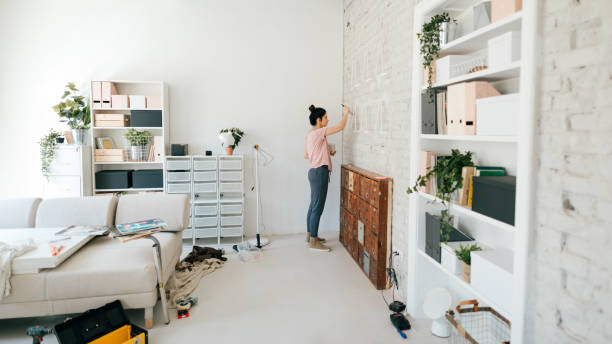Your home should be an escape, a paradise, the place you love most in the world. However, for many people, this isn’t the case. Your home can easily become one of the biggest sources of stress in your life. If this is the case, here are some tips that can help you to sort it out and create the space you’ve always dreamed of and wanted for you and your family.
1. Fix It
Sometimes, the source of your stress comes from the house itself. After a few years of living in your home, you may find that it has begun to fall down around you and that none of its features work as well as they did in the past. If this is the case, you should consider doing all that you can to fix it, before more things in your property start to go down the drain. For instance, you might decide that you want to transform it by redoing your roof. Conducting roof repairs or calling someone out to complete an entire roof replacement, can prevent leaks from cropping up and damaging your home’s interior, or creating damp and mold. You might also look at dealing with cracks in the walls, and damaged windows, and doors that are starting to come away from their hinges, among other easy property fixes.
2. Tidy It
You might have heard the old adage that a tidy home equals a tidy mind, and this phrase has more truth in it than you might think. A tidy home can prevent you from spending hours looking for lost or misplaced items, tripping over possessions that have been left out, or trying to clear your thoughts in a cluttered and miserable space where there isn’t even room to sit down. Even if you find tidying a chore, you should consider creating a schedule that gives you ten minutes of cleaning time per day. You might also consider cleaning as you go, as well as decluttering regularly. If you can afford it, you could even hire a cleaner who can aid you with these tasks. These things can help it feel less overwhelming.
3. Let the Light In
Sometimes, overly dark or dismal spaces can dampen your mood as well as the room you’re in. They can make you less productive and can even give you headaches. To prevent this from happening, you should try to maximize natural light in your home. You can do this by installing mirrors around your home, cutting back bushes and shrubbery that have crept up in frontof your windows, and adding small and tasteful artificial lights that can boost dark corners of your house.
4. Create Quiet Zones
In the hubbub of family life, you might feel overstimulated almost as soon as you step into your home, especially if you’re neurodivergent. If this is the case, you should try to create quieter, private zones away from the rest of the house, where you can take a moment, enjoy a hobby, or complete your work for the day. You might even soundproof the walls. These spaces can form a personal oasis within your home that’s yours, and yours alone.


